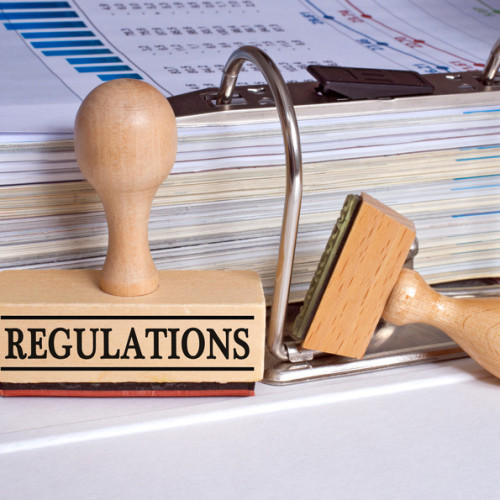
In order to be marketed on the French market, a food supplement must be subject to a prior declaration to the competent authority in accordance with Decree No. 2006-352 on food supplements. Since February 3, 2023, food supplements have been declared to the Directorate General for Food using the online declaration platform téléicare.

The right to use Nutri-Score is optional and free. It was implemented for the first time in France in 2017, based on the work of the team of Pr. Serge Hercberg as well as the expertise of the National Health Security Agency (ANSES) and the High Council of Public Health (HCSP). Since its launch in France, several countries have decided to recommend its use: Belgium, Switzerland, Germany, Spain, the Netherlands and Luxembourg. The logo is awarded on the basis of a score taking into account, for 100 g or 100 mL of product, the content: of nutrients and foods to promote (fibers, proteins, fruits, vegetables, legumes, nuts, rapeseed oil , nuts and olives) and nutrients to limit (energy, saturated fatty acids, sugars, salt). The Nutri-Score of drinks has been modified.

Background: in the Guidance on the implementation of Regulation N° 1924/2006 on nutrition and health claims: conclusions of the standing Committee on the food chain and animal health published in 2007, the probiotic term is considered as a health claim because it refers to the implied description or indication of a functionality on health.

Vitamin D3, or cholecalciferol, is essential for the proper functioning of our body and plays a decisive role in the quality of bone tissue. It is provided by food (dairy products, fish, eggs) and is produced by skin exposed to the sun. However, more than 1 in 3 French people fail to meet their physiological vitamin D3 needs, which is a major public health concern. Indeed, a vitamin D3 deficiency exposes people to known risks for human health, in particular during periods of growth. Pediatric societies recommend routine vitamin D supplementation for children to prevent rickets and for the elderly to avoid osteoporosis.

the FDA organised a webinar on october 21st to provide an overview of its proposed rule to update the definition of “healthy” nutrient

The proposed rule would update the definition for the implied nutrient content claim ‘healthy’ to better account for how all the nutrients in various food groups contribute and may work synergistically to create healthy dietary patterns and improve health. Under the proposed definition for the updated “healthy” claim, which is based on current nutrition science, more foods that are part of a healthy dietary pattern and recommended by the Dietary Guidelines would be eligible to use the claim on their labeling, including nuts and seeds, higher fat fish (such as salmon), certain oils and water.

The Council of State validated the request of an association against a decree which was to prohibit on October 1st names such as “steak” or “bacon” for products based on vegetable proteins.

The decree of the Official Journal (OFJR) “Laws and Decrees” n° 0150 of June 30, 2022 will prohibit from October 1, 2022 “the terminology specific to the sectors traditionally associated with meat and fish to designate products not belonging to the animal Kingdom”. However, it allows the marketing of “foodstuffs manufactured or labeled” before this date (October 1) until December 31, 2023 at the latest.

USR Constanța senator Remus Negoi gave a speech in the Senate plenary session regarding the legislative initiative of USR deputy Adrian Wiener, concerning voluntary nutrition labeling “Nutri-Score and the importance of a healthy diet.